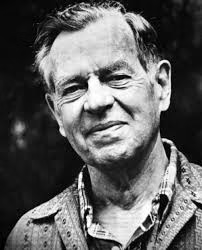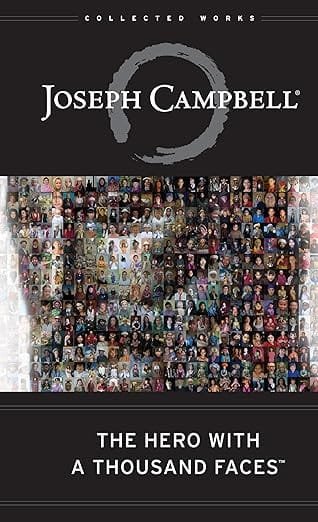Introduction to ‘Finding Joe’
‘Finding Joe’ is a thought-provoking documentary that explores the concept of the mythical self through the lens of Joseph Campbell‘s influential works. Released in 2011 and directed by Patrick Takaya Solomon, the film presents a profound journey into the hero’s journey, a narrative structure identified by Campbell that resonates across various cultures and eras.
The essence of the hero’s journey serves as the backdrop against which the film delves into the complexities of self-discovery and personal transformation.

A Journey Into The Mythical Self
The production of ‘Finding Joe’ was marked by a collaborative effort among notable filmmakers, as well as experts in mythology, psychology, and storytelling. This film aims to dissect Campbell’s theories and illustrate how they apply to modern narratives and personal experiences. By integrating interviews with writers, filmmakers, and thought leaders, ‘Finding Joe’ provides audiences with a multifaceted perspective on the timeless themes of courage, adventure, and identity. The film skillfully melds storytelling with philosophy, allowing viewers to reflect on their own life’s journey in the context of Campbell’s insights.
Quick Insights on ‘Finding Joe’
- ‘Finding Joe’: ‘Finding Joe’ is a documentary based on Joseph Campbell’s work, exploring the hero’s journey and its relevance to self-discovery and personal transformation across cultures.
- The Concept of the Hero’s Journey: Joseph Campbell’s framework, detailed in ‘The Hero with a Thousand Faces,’ outlines a universal pattern of adventure and growth, emphasizing that overcoming trials leads to self-discovery.
- The Role of Myth in Modern Life: ‘Finding Joe’ highlights how myths symbolize universal truths, aiding individuals in understanding their narratives and confronting life’s challenges through archetypal stories.
- Key Themes Explored in ‘Finding Joe’: The film explores themes such as self-discovery, personal transformation, and the search for meaning, illustrating that growth involves overcoming fears and embracing vulnerability.
- Lessons Learned from ‘Finding Joe’: The documentary teaches the importance of facing fears, pursuing one’s true path, practicing self-reflection, and viewing life’s challenges as opportunities for resilience and growth.
Central to ‘Finding Joe’ is the exploration of Campbell’s concept of the “monomyth,” which posits that narratives from around the world share a common structure. This structure not only guides characters through trials and tribulations but also encourages people to confront their fears and embrace their true selves. In a world increasingly defined by complex narratives and diverse experiences, the teachings of Joseph Campbell continue to play a pivotal role in understanding contemporary storytelling. As audiences embark on this cinematic journey, they are invited to examine their paths and the innate call to adventure they may experience throughout life’s stages.
The Concept of the Hero’s Journey
Joseph Campbell’s concept of the Hero’s Journey, as presented in his seminal work, “The Hero with a Thousand Faces,” has been instrumental in understanding narrative structures across various cultures. This framework outlines a universal pattern of adventure and transformation, illustrating how protagonists often embark on a quest that ultimately leads to profound personal growth and self-discovery. The Hero’s Journey consists of several key stages: the call to adventure, initiation, the road of trials, and the return. Each stage is designed to reflect an individual’s internal struggle and transformation.
In ‘Finding Joe’, the Hero’s Journey is vividly portrayed through the story of the protagonist. The film begins with the call to adventure, where the character feels an internal dissatisfaction, prompting a search for meaning and purpose. As the journey unfolds, we see the hero face various challenges and obstacles, which serve as trials testing their resolve and character. These elements encapsulate the essence of the Hero’s Journey, emphasizing that true growth often stems from overcoming adversity.
The road of trials within ‘Finding Joe’ is particularly significant, as it highlights moments of self-doubt and struggle, reflecting the universal experience of confronting inner fears. The film creatively demonstrates how these challenges are essential for personal transformation, echoing Campbell’s assertion that the hero must face such trials to emerge as a more enlightened individual. Furthermore, the return phase in the narrative underscores the importance of integrating newfound wisdom into everyday life, thus reinforcing the idea that the journey is as much about the destination as it is about the experiences gained along the way.
Ultimately, ‘Finding Joe’ masterfully illustrates Campbell’s Hero’s Journey, portraying the intricate dance between external adventures and internal growth. Through its storytelling, the film serves as a poignant reminder that the path to self-discovery and fulfillment is not a solitary endeavor but a shared human experience that resonates across time and cultures.
The Hero With A Thousand Faces by Joseph Campbell
Have you ever wondered why heroes in stories resonate so deeply? Joseph Campbell’s masterpiece, The Hero With A Thousand Faces, unravels this mystery! Through archetypes and universal themes, Campbell reveals the common thread woven through the tales of heroes from different cultures.
The Role of Myth in Modern Life
Myths have long been an integral part of human culture, serving as foundational narratives that shape our understanding of life, identity, and purpose. In the context of ‘Finding Joe,’ we observe how mythological elements are intricately woven into the narrative to facilitate a meaningful exploration of personal transformation. This film draws upon the archetypes and themes present in ancient myths, allowing viewers to comprehend their own experiences as a continuum of the human journey.
As individuals navigate the complexities of modern life, the relevance of myth becomes increasingly pronounced. Myths encapsulate universal truths that resonate across cultures and epochs, highlighting the fundamental challenges that humanity encounters. In ‘Finding Joe,’ the protagonist’s journey mirrors the hero’s journey outlined by the eminent scholar Joseph Campbell, which illustrates the quest for self-discovery and the confrontation of internal and external obstacles. This parallel invites viewers to reflect on their individual experiences, fostering a deeper emotional connection to their narratives.
Moreover, the film addresses contemporary challenges, such as the search for identity and purpose in a rapidly changing world. In this regard, myths serve not only as historical accounts but also as valuable frameworks through which modern audiences can interpret their life stories. By integrating mythological storytelling, ‘Finding Joe’ empowers viewers to engage with their struggles, encouraging them to perceive their paths of transformation as a continuation of timeless traditions. Thus, the portrayal of myth in this film demonstrates the powerful influence it wields in facilitating personal growth and understanding, reinforcing the notion that we are all participants in a larger narrative.
Key Themes Explored in ‘Finding Joe’
‘Finding Joe’ is a profound exploration of several key themes that resonate deeply with audiences seeking meaning and purpose in their lives. Central to the film is the theme of self-discovery, illustrated through the journeys of various characters who embark on personal quests. As these individuals navigate their paths, they confront their fears, insecurities, and the compelling need to understand their true selves. This theme aligns with the archetypal hero’s journey, where protagonists must venture into the unknown to unearth their core identities.
Another significant theme is personal transformation, which is depicted through the changes characters undergo as they confront internal and external challenges. The film emphasizes that growth often requires stepping outside one’s comfort zone and embracing vulnerability. For example, the narrative showcases how the protagonist learns to let go of preconceived notions and societal expectations, thus catalyzing a profound transformation. This transformation is not merely about achieving external success but rather entails an inward journey that leads to greater self-awareness and authenticity.
The quest for meaning constitutes yet another pivotal theme in ‘Finding Joe.’ The film articulates that life’s purpose is not a destination, but rather, an ongoing process of exploration and realization. Characters grapple with existential questions and the search for significance in their experiences, reflecting a universal human concern. Through powerful imagery and storytelling, the film illustrates that the pursuit of meaning often involves embracing life’s uncertainties and finding value in the journey itself. Together, these themes create a rich tapestry that invites viewers to reflect on their own lives and the collective human experience, reinforcing the film’s message of interconnectedness and individual growth.
The Hero With A Thousand Faces by Joseph Campbell
Have you ever wondered why heroes in stories resonate so deeply? Joseph Campbell’s masterpiece, The Hero With A Thousand Faces, unravels this mystery! Through archetypes and universal themes, Campbell reveals the common thread woven through the tales of heroes from different cultures.
Influence of Notable Figures
The documentary ‘Finding Joe’ intricately weaves the insights of several prominent figures, each contributing to a multifaceted interpretation of Joseph Campbell’s work and its implications for the modern individual. These thought leaders, artists, and writers offer unique perspectives that not only illuminate Campbell’s ideas but also expand upon the overarching themes of self-discovery and the hero’s journey presented in the film.
One notable figure featured in ‘Finding Joe’ is the esteemed mythologist and writer, Sara Lawrence-Lightfoot. Her discussion of Campbell’s influence on contemporary society emphasizes the relevance of myths in navigating personal challenges. Through her experience in education and storytelling, Lawrence-Lightfoot highlights how myths serve as guides in understanding our life’s narratives. Her reflections encourage viewers to take a more introspective approach to their journeys, enriching the film’s core message about exploring one’s mythical self.
Another influential contributor is the renowned filmmaker and author Deepak Chopra. Chopra’s insights bridge the intersection between spirituality and personal evolution as inspired by Campbell’s work. His contributions resonate with audiences seeking deeper meaning in their experiences, effectively linking verbal and visual storytelling. By presenting the hero’s journey as a universal framework, Chopra intensifies the thematic exploration of the film, allowing viewers to reflect on their paths toward self-actualization.
Additionally, the artistic commentary from figures such as wrestler-turned-actor Dwayne Johnson underscores the film’s notion that the hero is often a reflection of the broader cultural narrative. Johnson’s remarks illustrate how individual stories connect with collective myths, revealing that personal struggles resonate universally. Through the diverse lenses of these notable contributors, ‘Finding Joe’ fosters a richer understanding of Campbell’s influence while inspiring audiences to embark on their journeys of self-discovery.
Cinematic Techniques in ‘Finding Joe’
‘Finding Joe’ is a powerful exploration of the journey toward self-discovery, enriched by various cinematic techniques that elevate its narrative depth. The film employs a variety of visual styles to convey the mythological themes inspired by Joseph Campbell’s philosophy. The cinematography plays a crucial role in setting the film’s emotional tone. Stunning landscapes juxtaposed with intimate close-ups enable viewers to connect with the protagonist’s internal struggles. For instance, the use of natural light during pivotal moments adds a layer of authenticity, highlighting the character’s emotional transitions in their quest for identity.
Editing is another vital component that supports the film’s storytelling. Transitions between scenes often utilize cross-cutting, allowing the viewer to engage with multiple perspectives simultaneously. This technique creates a sense of urgency and reinforces the interconnectedness of personal and universal journeys. Additionally, the rhythmic pacing of the edits complements the film’s fluctuating emotional landscape, alternating between moments of introspection and climactic revelations, thus enhancing the overall narrative flow.
Sound design in ‘Finding Joe’ also significantly contributes to its mythological tone. The film employs an evocative score that complements the visual elements, further immersing the audience in the character’s journey. Ambient sounds and carefully chosen musical motifs punctuate key moments, guiding viewers’ emotional responses. For example, pronounced silence during reflective sequences encourages introspection, while soaring harmonies during transformative scenes evoke a sense of hope and possibility.
Together, these techniques create a cohesive aesthetic that deeply resonates with the audience. By artfully blending cinematography, editing, and sound design, ‘Finding Joe’ effectively engages viewers in its exploration of the mythical self, inviting them to reflect on their journeys of self-discovery.
Audience Reception and Impact
The film ‘Finding Joe’ has garnered significant attention since its release, resonating with a wide array of audiences seeking personal growth and inspiration. Reviews highlight its profound ability to intertwine philosophical concepts with accessible narratives, making the underlying messages relatable. Many reviewers commend the film’s insightful exploration of the hero’s journey, a timeless theme that encourages individuals to embark on their quests for self-discovery.
Audience reactions vary from enthusiastic endorsements to deep resonances of personal transformation. Viewers have expressed how the film has sparked motivation within them to pursue their aspirations, embrace vulnerability, and confront their fears. Testimonials abound on social media platforms, where individuals share their stories of how ‘Finding Joe’ catalyzed life-altering decisions, instilling courage to navigate through personal challenges. This outpouring of emotional responses emphasizes the film’s significant impact, positioning it as a medium that not only entertains but also inspires.
Critical acclaim has also played a pivotal role in shaping the film’s reception. Influential reviewers and film critics have lauded ‘Finding Joe’ for its rich visual storytelling and compelling narrative structure. Many regard it as an essential film that contributes meaningfully to contemporary culture, serving as a reflective lens through which viewers can examine their life journeys. The messaging surrounding the importance of authenticity and self-exploration has struck a chord, fostering a community of like-minded individuals motivated to embrace their mythical selves.
In essence, the film’s ability to inspire viewers is a testament to its enduring relevance. By merging philosophical insights with personal narratives, ‘Finding Joe’ holds a mirror to society, encouraging an introspective look at one’s life path and the pursuit of true fulfillment.
The Hero With A Thousand Faces by Joseph Campbell
Have you ever wondered why heroes in stories resonate so deeply? Joseph Campbell’s masterpiece, The Hero With A Thousand Faces, unravels this mystery! Through archetypes and universal themes, Campbell reveals the common thread woven through the tales of heroes from different cultures.
Lessons Learned from ‘Finding Joe’
‘Finding Joe’ serves as a profound exploration of the human experience, particularly focusing on self-discovery and personal growth. One of the fundamental lessons derived from the film is the importance of embracing challenges as opportunities for transformation. Throughout the narrative, viewers are reminded that discomfort and obstacles are integral parts of life’s journey. The film encourages individuals to confront their fears and uncertainties, highlighting that these experiences can ultimately lead to greater self-awareness and resilience.
Additionally, ‘Finding Joe’ emphasizes the significance of pursuing one’s true path. It illustrates that each person’s journey is unique, and people must cultivate the courage to forge their destinies. The film reflects the mythological hero’s journey, encapsulating various stages of growth, including trials, tribulations, and eventual triumphs. By engaging with these themes, audiences are prompted to consider their pursuits and aspirations, fostering a deeper understanding of their purpose.
Another essential takeaway is the idea of self-reflection. The film invites viewers to look inward and assess their lives. This practice can lead to valuable insights regarding one’s passions, motivations, and goals. In doing so, individuals may discover hidden strengths and the potential to pursue a more fulfilling life. ‘Finding Joe’ catalyzes such introspection, prompting audiences to contemplate their narratives, beliefs, and what it means to truly embrace the journey of life.
This introspective journey, highlighted by the film, underscores the notion of resilience in the face of adversity and the belief that personal transformation is achievable. Overall, ‘Finding Joe’ encourages viewers to embark on their quests for self-discovery, inspiring them to navigate through life’s complexities while remaining steadfast to their truths.
Conclusion and Final Thoughts
‘Finding Joe’ serves as a compelling lens through which we can explore the profound significance of myth and the Hero’s Journey in our lives. Throughout the film, viewers are invited to reflect on the archetypal stories that shape human experience, illustrating how these narratives guide individuals on their paths of self-discovery. The exploration of myth is not merely an academic endeavor; it resonates deeply with our innate desire to understand ourselves and our purpose.
By encouraging viewers to seek their own stories, ‘Finding Joe’ highlights the enduring relevance of myth. It reminds us that the struggles we face can forge pathways to powerful insights and personal revelations. In a world filled with distractions and uncertainties, storytelling emerges as a vital tool for navigating personal transformation. Stories can connect us to our inner selves while also fostering a sense of community and shared understanding among those undergoing similar experiences.
Ultimately, the insights gained from ‘Finding Joe’ urge us to embrace the Hero’s Journey in our lives. By reflecting on our experiences, seeking our truths, and recognizing the narrative arcs that shape our stories, we can better navigate the complexities of existence. Engaging with our mythologies empowers us to embark on journeys toward fulfillment and self-realization, reminding us that every hero’s journey begins with a single step into the unknown.
Who Was Joseph Campbell?
Joseph Campbell was an American professor, writer, and mythologist, born on March 26, 1904, and died on October 30, 1987.

He is best known for his profound exploration of mythology and its role in human culture. Campbell’s insights continue to inspire a wide range of disciplines, including literature, psychology, and creative arts, making him a pivotal figure in understanding the narrative structures that shape storytelling.
His Major Contribution: The Hero With a Thousand Faces
Campbell’s most celebrated work, The Hero with a Thousand Faces, published in 1949, examines the archetype of the hero’s journey, a common narrative found across various cultures. In this influential book, he outlines a universal pattern, which he calls the ‘monomyth.’ This concept illustrates how heroes worldwide share similar experiences, often undergoing challenges to transform and return home with newfound wisdom.
Legacy and Influence
Joseph Campbell’s influence extends far beyond academia. His ideas have shaped the writing of popular cultural icons, including George Lucas, who credited Campbell’s work in the development of the Star Wars saga. The modern understanding of storytelling owes much to Campbell’s ability to bridge mythology and contemporary narratives, showing us the fundamental truths that connect all human experiences. Today, his ideas about mythological structures serve as essential tools for writers and creators intent on crafting compelling stories that resonate with audiences across the globe.
Frequently Asked Questions About Finding Joe
What lessons can viewers learn from ‘Finding Joe’?
Viewers learn the importance of facing fears, embracing challenges, pursuing their true path, practicing self-reflection, and recognizing that personal growth is a journey rooted in resilience and storytelling.
What are some key themes explored in ‘Finding Joe’?
The film explores themes such as self-discovery, personal transformation, the search for meaning, authenticity, and the importance of embracing challenges as opportunities for growth.
What role do myths play in modern life, according to ‘Finding Joe’?
Myths serve as universal narratives that help people understand their own life stories, confront challenges, and find purpose by connecting personal experiences with timeless archetypes and cultural themes.
How does the film illustrate Joseph Campbell’s concept of the Hero’s Journey?
The film portrays the Hero’s Journey by depicting the protagonist’s call to adventure, facing trials, overcoming internal and external obstacles, and achieving transformation, which reflects Campbell’s stages of personal growth and self-discovery.
What is ‘Finding Joe’ about?
‘Finding Joe’ is a documentary that explores the myth of the hero’s journey and the process of self-discovery through the lens of Joseph Campbell’s influential theories.
Body, Mind, And Soul For A Fulfilled Life!





